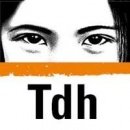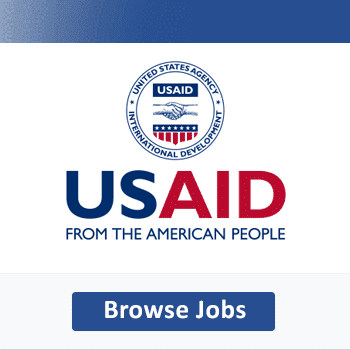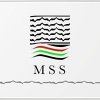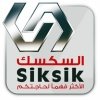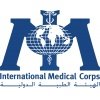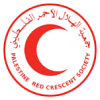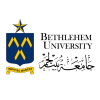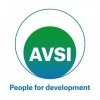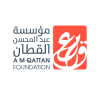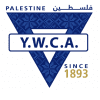Consultancy for conducting health situational analysis in th...

Consultancy for conducting health situational analysis in the West Bank and Gaza
Terms of Reference
1.1 About Terre des hommes Foundation
Terre des hommes
Created in 1960, the mission of the Foundation of Terre des hommes Lausanne (Tdh) is to come to the aid of children in need. It endeavours, at all times, to defend the rights of children, in times of war and natural disasters, or in less publicised situations of distress. Today, Tdh is the largest non- governmental organisation (NGO) for children’s aid in Switzerland. Besides, Tdh has development projects and emergency relief programmes in more than 30 countries, including seven countries in the MENA region: Lebanon, Jordan, Egypt, Syria, Iraq, Afghanistan, and the occupied Palestinian territory (oPt).
Over the last fifty years, Tdh has developed three core areas of focus: Migration, Health, and Access to Justice for Children and Youth with transversal topics on Child Protection; Water, Sanitation and Hygiene (WASH); and Information and Communication Technology for Development (ICT4D).
1.2 Tdh Health Programme in the MENA Region
Globally, the Health Programme works to strengthen the Nexus approach through clearly defined collective outcomes. This translates into an effort to deliver quality health services in all situations equally, continuously, and resiliently addressing population needs within acute and/or protracted crises with volatile evolutions, resulting in having the capacities to adapt to new environment within the triple Nexus (including in the implementation of a clear exit strategy).
The main target populations of the Tdh Health Programme are newborns, children below 5 years old, and pregnant and lactating women (including adolescent mothers), in rural and semi-rural settings. These groups of the population are the most vulnerable and at risk of diseases and death. They are also those suffering the most in acute and protracted humanitarian crises during wars and forced displacement. Families, caregivers, community groups, and committees are also beneficiaries of our interventions on health at community level.
Tdh’s health activities are implemented through the provision of training and resources to healthcare workers at community and primary health level. District and national health authorities benefit from improved infrastructure and, wherever possible, from Tdh support on health information systems through Tdh digital health projects, having direct access to data for evidence-based decision-making processes.
In the dynamic context of the MENA Region, Tdh's health initiatives are making meaningful impacts, particularly in Afghanistan and Gaza. With a presence dating back to 1995 in Afghanistan, Tdh has been steadfast in its commitment to enhancing maternal and child health, nutritional support, and safeguarding vulnerable families and children amidst challenging circumstances. Operating across vital provinces such as Herat, Kandahar, Laghman, Kunar, Nangarhar, and Kabul, Tdh fills critical gaps in basic services, ensuring access to essential healthcare, nutrition, and hygiene for those in need.
In response to the pressing needs arising from the ongoing conflict, Tdh has extended its support to Gaza where it is embarking on a health project. Alongside WASH initiatives, Tdh collaborates with a local partner to disseminate crucial information on health, nutrition, and hygiene within shelters, ensuring that affected communities, especially children under 5 and PLWs receive vital support and guidance during these challenging times.
1. Background and Context
The Occupied Palestinian Territory (oPt) continues to grapple with complex challenges resulting from decades-long Israeli occupation. The ongoing hostilities in Gaza, with spill-over effects in East Jerusalem and the West Bank, have severely impacted the health of its population, particularly Maternal and Child Health (MCH). In West Bank and Jerusalem, frequent military confrontations, restricted movement due to checkpoints and blockades, and limited access to essential medical supplies and services exacerbate health issues faced by Pregnant and Lactating Women (PLW) and Children under 5 years old. The Gaza Strip faces dire conditions with inadequate healthcare infrastructure and resources, among others, due to direct targeting of health facilities, leading to the destruction of the health infrastructures and death of some healthcare workers. Pregnant women and children are disproportionately affected, experiencing higher rates of malnutrition, stress-related disorders, and limited prenatal and postnatal care. According to the World Health Organization (2024), these factors contribute to high rates of maternal and infant mortality and morbidity in the region.
Tdh in the oPt was established in 1973 in response to child malnutrition in the West Bank. Tdh has been providing multi-sectoral protection services to vulnerable children and their families, targeting especially child labor, injured children, and survivors of gender-based violence (GBV), mostly in Gaza. Since no health program has been implemented by Tdh oPt before the ongoing war, the Delegation aims to conduct a health assessment to determine and understand the current needs, vulnerabilities, and opportunities for improvement within the health sector, especially on MCH.
2. Objectives and expected results of the consultancy
The aim of the consultancy is to conduct a health situational analysis in the oPt, focusing on the following health priorities: perinatal health, health systems strengthening, and digital health.
The main objectives of the consultancy are:
To guide the strategic direction of the Tdh oPt delegation regarding forthcoming health program development, in alignment with the overarching global Theory of Change for the Health program and based on the identified needs and gaps in the situational analysis.
To assess the key gaps and evaluate the quality of health services and pinpoint unmet needs among the targeted demographic groups in the West Bank and Gaza, with a particular emphasis on maternal and child health (MCH) and nutritional support and its integration with Child Protection, WASH, Access to Justice, and Migration sectoral priorities of Tdh. This analysis will encompass primary (children under 5 and Pregnant and Lactating Women) and secondary targets (healthcare workers, community members), as well as collaborations with NGOs engaged in health programs within the oPt.
To identify opportunities for strengthening the national health system, including initiatives to enhance the capacity of local authorities in leveraging innovative technologies and implementing digital health technologies on MCH within the healthcare sector.
To identify potential partners in the West Bank and Gaza and pinpoint donors who can support the launch of health initiatives by Tdh. This will involve analyzing the capacities and interests of local organizations and stakeholders, as well as reviewing donor profiles and funding priorities to align with Tdh’s health program objectives. Through this situational analysis, we aim to establish strategic partnerships and secure necessary funding to effectively address MCH needs in the oPt.
The following are the guide questions to fulfill the above-mentioned objectives:
MCH
What are the most pressing needs of pregnant and lactating women and children under 5? Are any of these needs unmet?
What are the social norms that influence attitudes and behaviors on antenatal, delivery, postnatal care, family planning, and nutrition practices? How is the health-seeking behavior in terms of maternal and child health (MCH) and the practices related to institutional deliveries?
What factors contribute to maternal and child morbidity and mortality in the oPt? Which interventions should Tdh prioritize to help decrease these rates?
What are the key services provided in relation to MCH and nutrition in the oPt?
How does the current context in the oPt affect pregnant and lactating women and children from 0-5 years in terms of nutrition practices and their access to MCH services?
What are the key gaps in the quality and accessibility of the MCH and nutrition services provided. How Tdh would be able to contribute towards the fulfillment of these gaps?
What are the key health gaps in the assistance provided by the stakeholders that could be covered by Tdh oPt?
How closely do healthcare workers adhere to maternal and child health (MCH) clinical protocols?
What are the objectives and priorities of the Ministry of Health in relation to MCH and nutrition?
What are the health needs of PLW who are in contact with the law or who are in detention centers? Are these needs met at an institutional level?
What is the capacity of the healthcare workers to integrate MHPSS or Protection considerations in the healthcare activities? How can Tdh increase this capacity?
How is the referral pathway for protection services, particularly for Gender-Based Violence (GBV) and violence against children, integrated and implemented within health facilities? Are health facilities effectively implementing the Child Protection (CP) national referral system at the facility level?
How is the referral pathway for high-risk pregnancies and for children with severe cases?
Digital Health/Systems Strengthening
What are the objectives and priorities of the Ministry of Health in relation to digital health, specific to MCH?
What is the current digital landscape like in the oPt? Are there prominent private and public local entities equipped to collaborate with Tdh in this domain?
Who are the key stakeholders relevant to MCH, nutrition, and digital health in the oPt?
What are the donors’ strategies/priorities in relation to MCH, nutrition, and digital health in the oPt?
Which donors in the oPt are interested in funding digital health initiatives?
How can we leverage public-private partnership to forward MCH priorities? On Digital health?
Donors/Partners Mapping
Which donors currently fund maternal and child health programs in the oPt? What specific initiatives or projects have they supported recently?
What local NGOs or community-based organizations are actively engaged in maternal and child health initiatives, including nutrition interventions, in the oPt?
Are there any partnerships between international organizations and local entities that focus on digital health solutions in Palestine? What types of digital health interventions have been implemented or planned?
How do donors and partners prioritize maternal and child health within their funding strategies in Palestine? Are there specific areas or populations they target more prominently?
How do donors and partners ensure sustainability of maternal and child health interventions in the oPt, particularly those incorporating digital health solutions?
Are there opportunities for new partnerships or collaborations in maternal and child health, nutrition, or digital health that could enhance outcomes in the oPt?
3. Methodology
The methodology proposed with the technical offer should include (not exhaustive): desk/literature review, KII/FGDs, surveys, technical meetings/s with Tdh team/others.
Focus areas in the West Bank are hotspot communities, such as Area C, East Jerusalem, H2, Jenin, Nablus. The selection of areas in Gaza will depend on their accessibility and the current security situation, with the safety of the assessment team being the top priority.
4. Deliverables
An inception report, including the report outline, will be submitted which will detail the methodology and assessment matrix for conducting the situational assessment. The inception report shall be submitted and validated by Tdh in the timeframe mentioned under “Period, duration of the consultancy and tentative workplan” (Section 7).
A situational assessment report shall be submitted to the Regional Health Coordinator and the oPt Senior Program Manager which shall include at minimum and not exclusively:
An executive summary (max. 2 pages)
An automatic table of contents
A list of annexes, glossary, tables, figures, pictures, graphs, maps, bibliography,
An introduction
The presentation of the methodology, scope, and limitations
A background chapter (short)
A literature review
The main findings (including disaggregated data and qualitative/quantitative data from surveys, interviews and FGDs). This will be structured and presented in accordance with the outlined objectives and organized according to the needs and suitable approaches for Gaza and West Bank
Detailed and practical recommendations, according to outlined objectives of this ToR and
according to the context in Gaza and West Bank
Annexes: all tools, bibliography…
a powerpoint presentation summarizing the results of the study
Presentation of powerpoint to Tdh relevant staff
The report shall be written and submitted in English.
The situational assessment report will aim to reach actionable conclusions and interpretations using the SMART criteria making a full use of all the data collected.
5. Tdh focal points
The main focal point will be the Tdh Health MENA Regional Coordinator. The secondary focal point will be the Senior Program Manager in the oPt.
6. Period, duration of the consultancy and tentative workplan
The consultancy will last approximatively 26 open non-consecutive days and should start on September 2024 and be finalized by Mid November 2024
The proposed workplan of the consultancy is as follows (to be adjusted as deemed necessary by the Consultant in the technical offer):
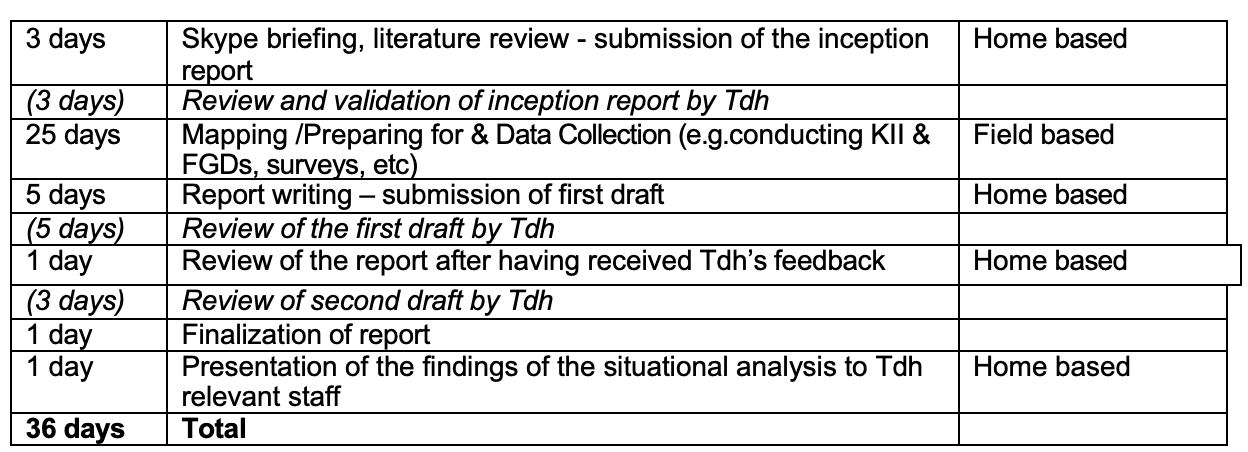
7. Terre des hommes Child Safeguarding and PSEA Policies
Tdh Lausanne commits to best practices in Child Protection in the implementation of its projects, following its own Child Safeguarding Policy. Besides, in the event of partnering with local organizations or individuals, Tdh Lausanne ensures that they also develop and apply a Child Safeguarding Policy. Within this framework and considering that the Consultant will engage directly with Tdh partners and beneficiaries, adherence to Tdh's Child Safeguarding Policy is imperative. Consequently, the Consultant will be required to sign and adhere to this policy, receiving comprehensive briefings accordingly. In addition, the Consultant will also be expected to endorse the Tdh Policy on Protection from Sexual Exploitation and Abuse (PSEA).
8. Budget
The total cost of the consultancy should not exceed 10,900 USD (all included). Tdh will not be responsible for hotel, visa, transportation costs of the Consultant. The local consultant or company should be able to submit a formal taxable invoice, with a valid deduction at source; if the consultant or company fails to do so, 10% will be deducted from the total invoice.
Profile of consultant/consultancy team
A post-graduate or equivalent qualification/degree in Medicine, Public Health, Development Studies, Humanities or any other relevant discipline. Excellent level of expertise would be prioritized.
Proven technical knowledge and expertise on health, specifically on maternal and child health, nutrition and digital health
Proven research and analytical skills, experience in leading studies. Knowledge of the health system in the oPt is a must.
Experience with both quantitative and qualitative data collection methods in the frame of humanitarian and development projects.
Experience working in the oPt health system or with the Ministry of Health is a
Excellent writing and reporting
Excellent written and speaking skills in English and in Arabic. Consultancy team can be comprised byinternational and/or nationals, provided that the excellency in both languages can be demonstrated by the individual (if applying as only one consultant) or the team proposed.
Additional requirement:
Acknowledged similar consultancies with recognized
10. Submission of the application
To be considered, interested and qualified consultants must submit the following documentation:
Curriculum vitae (max. 3 to 4 pages highlighting work experience and qualifications relevant to this consultancy)
Local companies or consultants should submit a valid deduction at source, and international consultants or companies should submit a valid registration certificate.
Full contact details of at least two references from among recent clients/line managers
One sample report highlighting experience relevant to this consultancy
A technical offer comprising:
Understanding of the objectives of the Consultancy and the Terms of Reference (ToR);
Outline of the methodology and tools proposed;
A chronogram showing details for the realization of the situational assessment. The schedule proposed should include time for briefing and debriefing with Tdh national and regional teams.
A financial offer with a detailed budget in USD
Please send your applications to: [email protected]
Deadline for submissions is 19th of August 2024 (COB, oPt time). Only applicants submitting complete applications will be considered and only those short listed will be contacted.




